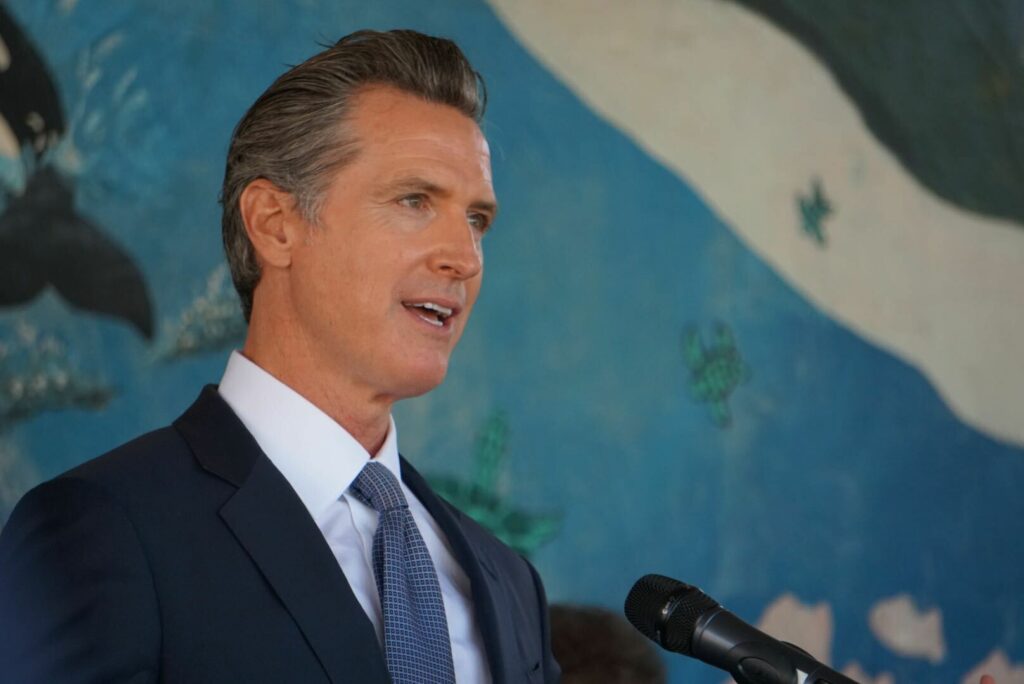
Black teachers: How to recruit them and make them stay

Lessons in higher education: What California can learn

Keeping California public university options open

Superintendents: Well-paid and walking away

The debt to degree connection

College in prison: How earning a degree can lead to a new life

Days before the state unveils its revised budget proposal, expectations are it will likely include a massive increase in funding to help provide health care for part-time instructors at California community colleges, people with knowledge of the matter said.
Gov. Gavin Newsom’s draft 2022-23 spending plan released in January contained $200 million for a fund to help the state’s 72 local community college districts pay for coverage for the part-timers, commonly known as adjuncts. With heavy union lobbying and state coffers bulging from a record surplus of $68 billion or more it appears the money will be in the revised spending plan Newsom must send to the Legislature by Saturday.
“We haven’t heard any indication that it won’t be the full $200 million,” said Matthew Hardy, a spokesman for the California Federation of Teachers, which has pushed hard for the funding. In a study it published last week, the union found that 72% of adjuncts consider teaching, often at multiple districts, to be their full-time employment.
Another group representing adjuncts expressed similar optimism that the money will remain in the revised budget.
The proposal “for part-time faculty health care has strong support” in the governor’s office, the state Department of Finance and among lawmakers, said Evan Hawkins, the executive director of the Faculty Association of the California Community Colleges, an advocacy group for both full-time and part-time faculty.
It’s also backed by state Community College Chancellor Eloy Ortiz Oakley. “We remain hopeful that funding remains in the May budget revision. It’s an important priority for our system,” Oakley’s spokesman, Paul Feist, told EdSource.
H.D. Palmer, a spokesman for the state Department of Finance who speaks for Newsom on budget matters, declined to comment.
The plan would require legislative approval. And it is not a guarantee that all adjuncts would immediately receive health care. The money would fund a pool to which local districts would have to apply for reimbursement for 50% of their cost of providing coverage. The fund has been badly underfunded in recent years, and the reimbursement rate last year was 4 cents for every dollar districts requested, EdSource reported in a three-part series on adjunct working conditions published in February.
Nearly 37,000 adjunct instructors are the backbone of the state’s community college system, which enrolls roughly 1.5 million students and is the nation’s largest higher-education system. They work semester-by-semester with little to no job security, especially now as pandemic-driven enrollment drops are costing jobs. Adjuncts often take gigs at multiple college districts to cobble together something akin to full-time work, but at pay rates vastly lower than full-time professors.
A review of employment contracts for that series showed that 39 of the state’s 72 districts provide adjuncts with some level of health care, while 33 provide no coverage. What’s provided by the 39 districts varies greatly by district, from small stipends to partially reimburse adjuncts for insurance they purchase on their own, to policies with high employee cost-sharing through payroll deductions.
All details are negotiated locally. If the money is in the budget Newsom signs this summer, districts that have not provided benefits before but wish to take advantage of funding will have to start from scratch.
Other bargaining groups will either have to reopen negotiations over benefits or wait until new contract negotiations begin.
Some, though, said Hardy of the CFT, aren’t waiting. “Some locals are already in bargaining pending the inclusion of the money in the budget,” he wrote in an email.
Wendy Brill-Wynkoop, president of the faculty association, said “the implementation may be challenging given that health care falls under the scope of bargaining.” But the goal remains to provide “every part-time faculty member in the state access to health care options.” The association, which is not a union and does not engage in bargaining, lobbies for the needs of both full- and part-time faculty.

Panelists discussed dual admission as a solution for easing the longstanding challenges in California’s transfer system.

A grassroots campaign recalled two members of the Orange Unified School District in an election that cost more than half a million dollars.

Legislation that would remove one of the last tests teachers are required to take to earn a credential in California passed the Senate Education Committee.

Part-time instructors, many who work for decades off the tenure track and at a lower pay rate, have been called “apprentices to nowhere.”
Comments
Comments Policy
We welcome your comments. All comments are moderated for civility, relevance and other considerations. Click here for EdSource's Comments Policy.